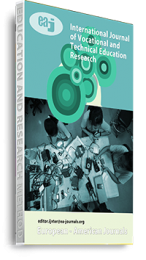Digital technology has provided an effective instructional delivery paradigm in technical education, which enhances the attainment of cognitive, affective, and psychomotor skills. The purpose of an intelligent tutor as a computer-aided learning system is to complement teacher activities by providing students with relevant information via a computer interface. This study aims to develop a web-based artificial intelligence tutoring system for practical electrical installation and maintenance work for teachers in Nigerian technical colleges. Specifically, the study sought to develop the Electrical Installation Intelligence Tutor (EIIT) software, determine the effect of the tutor on students’ acquisition of practical skills, and determine students’ interest in studying electrical installation. Two research questions and two null hypotheses guided the study. The study adopted R&D design. From a population of 263 electrical installation students, 20 were selected to use the stand-alone method and 18 to use the web-based method. The instrument for data collection was lesson plans based on three of the components of electrical installation namely, domestic and industrial installation, and cable jointing topics as listed in the National Board for Technical Education syllabus. An achievement test and interest survey were developed and built into the software. Validation of the content of the achievement test was determined to be 0.67, while the internal consistency of the survey was 0.89. The null hypotheses were tested through analysis of covariance at the 0.05 significance level. Results show that use of the tutor caused the students to be more highly interested and motivated. Thus, the authors recommend intelligent tutor
Keywords: Electrical Installation, Intelligent Tutoring, Technical Colleges, Web-Based

